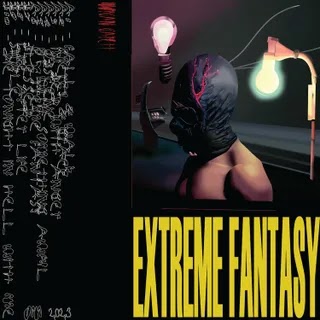For a quarter-century, the Canadian chamber ensemble has made hold music for awaiting a revolution. Suddenly, on their seventh album, they sound hopeful it could come.
For a band boasting so many members, Godspeed You! Black Emperor spent an awfully long time straining beneath the weight of their own concepts. During their first decade-long phase around the turn of the millennium, they were a proudly shambolic chamber ensemble making post-rock protest music; the specific quality of the strings or seamlessness of the samples mattered less than the apocalyptic alarms their gestalt sounded. The work suggested a stirring Dada pedigree, where the feverish expression of some revolutionary idea mattered more than the nuances of execution. Indeed, the sheer audacity of the enterprise and Godspeed’s unwavering commitment to unarmed musical confrontation felt truly awesome, making 1997’s F♯ A♯ ∞ and 2000’s Lift Your Skinny Fists motivational landmarks. But how much staying power could such willful imperfection hold?
Since Godspeed’s return a decade ago, they have dutifully addressed that question by making records that, by and large, sound more sophisticated and better played while maintaining their political ballast. During their time away, Godspeed recruited a powerful new drummer, and its members woodshedded in a dozen different projects. Their records since 2012 have been rendered with a combustible mix of force and detail, allowing Godspeed to lift their insurgent ideas rather than be saddled by them. G_d’s Pee AT STATE’S END!—their first album in four years and the fourth in this second phase—not only epitomizes this new dynamic but also emerges as a timely career triumph. The four suites of music here sound incredible, capturing the grandeur, aggression, and power of their symphonic punk with perfect clarity. And it feels incredible, too, as it endures passages of oppressive darkness to step at least toward a new dawn.
State’s End could initially be seen as some outburst of hope, especially as the wealthiest parts of the world vaccinate ourselves out of one crisis. The opening 20-minute suite feels like fight music, after all, a battle anthem built around a blade-sharp riff and marching drums; it fades into a victorious afterglow, where a dance for strings feels like a sigh of relief. And there is no moment more radiant or galvanizing in Godspeed’s discography than the third piece’s finale, “Ashes to Sea or Nearer to Thee.” It’s hard to hear it without smiling, without imaging yourself winning a race or beating back whatever long odds you certainly have. The string-and-static dénouement, “Our Side Has To Win (For DH),” possesses the same aspirational romanticism as its name, with Sophie Trudeau’s choir of violins arcing ever upward.
More than glibly hopeful, though, State’s End feels honest about the nonlinear shape of progress, or how winning the war to build a better world inherently entails a lot of devastating loss. Recorded under cover of masks, these four pieces exist in a world of anxiety, where any optimism is always backlit by some danger. The opening riff emerges from a long prelude made by sampling the signals of shortwave radios; it’s a pointed reminder of the multiplying distractions you have to overcome just to get in the fight, let alone win. And the third suite only reaches that righteous climax after 15 minutes of assorted anguishes—more sampled cacophony, lachrymose strings, a disoriented rhythm section that pulls itself together long enough to play a dirge that begins to feel like a nervous wreck.
And though “Our Side Has to Win” ultimately drifts toward redemption, it first weeps like an elegy. The band works through impossible emotional burdens in the same steady way as composer Gavin Bryars or his spiritual descendants in the Stars of the Lid, teetering at the crooked line between salvation and suffering. With the exception of the resolutely downcast “Fire at Static Valley,” these pieces function like a series of ouroboroi, defeat and victory locked in a cycle of mutually assured destruction and rebirth. There is enough momentum here to break that spell, or at least aspire to it.
Maybe State’s End hints that Godspeed have grown soft as they near the 30-year mark. They’ve won prestigious prizes, after all, and opened arena-filling tours. Their sound skews more pro than am these days, and they’re more into inspiring resolve than simply telling us the car is on fire, with no driver at the wheel. But no, they realize that the government is still corrupt, that the machine is still bleeding to death. They have smartly recognized that, in 2021, none of this is any more shocking than the sight of a 10-member punk symphony.
They no longer need to chart out the financial ties between record labels and warmongers on album covers or soundtrack endless doom when there’s Twitter. Instead, they’ve opted to acknowledge a world of seemingly infinite struggle and offer a well-earned, well-timed score for continuing the fight. Godspeed You! Black Emperor spent a quarter-century making hold music for awaiting a revolution; why shouldn’t they bask in signs of its potential sparks now, however limited or fleeting they might be?












%20Music%20Album%20Reviews.webp)



0 comments:
Post a Comment